
Slea Head Drive: Ireland's Scenic Coastal Gem
Slea Head Drive, located on the Dingle Peninsula in County Kerry, Ireland, is a breathtaking circular route that showcases some of the most stunning coastal scenery in the country. This 30-mile drive takes you through a landscape of rugged cliffs, golden beaches, and rolling green hills, offering panoramic views of the Atlantic Ocean and the Blasket Islands. As you meander along the narrow, winding roads, you'll encounter charming villages, ancient ruins, and iconic landmarks that bring the rich history and culture of the region to life. One of the highlights of Slea Head Drive is the chance to see the famous Gallarus Oratory, a well-preserved early Christian church that dates back to the 7th or 8th century. The drive also offers plenty of opportunities to stop and explore, with numerous trails leading to secluded beaches and dramatic viewpoints. The vibrant town of Dingle serves as the perfect starting point for your journey, offering a variety of dining options, traditional pubs, and local shops. Whether you're a history enthusiast, nature lover, or simply looking to experience the wild beauty of Ireland's west coast, Slea Head Drive promises an unforgettable adventure. The ever-changing weather adds to the mystical atmosphere, so be sure to bring your camera and capture the magic of this enchanting destination.
Local tips in Slea Head Drive
- Start your drive early in the morning to avoid crowds and enjoy the serene landscape at its best.
- Bring waterproof clothing and sturdy shoes, as the weather can be unpredictable and the trails can be slippery.
- Take time to visit the Blasket Centre to learn about the history and culture of the Blasket Islands and their inhabitants.
- Don't miss the chance to try fresh seafood in Dingle, renowned for its culinary delights.
- Keep an eye out for local wildlife, including dolphins, seals, and a variety of seabirds.
Slea Head Drive: Ireland's Scenic Coastal Gem
Slea Head Drive, located on the Dingle Peninsula in County Kerry, Ireland, is a breathtaking circular route that showcases some of the most stunning coastal scenery in the country. This 30-mile drive takes you through a landscape of rugged cliffs, golden beaches, and rolling green hills, offering panoramic views of the Atlantic Ocean and the Blasket Islands. As you meander along the narrow, winding roads, you'll encounter charming villages, ancient ruins, and iconic landmarks that bring the rich history and culture of the region to life. One of the highlights of Slea Head Drive is the chance to see the famous Gallarus Oratory, a well-preserved early Christian church that dates back to the 7th or 8th century. The drive also offers plenty of opportunities to stop and explore, with numerous trails leading to secluded beaches and dramatic viewpoints. The vibrant town of Dingle serves as the perfect starting point for your journey, offering a variety of dining options, traditional pubs, and local shops. Whether you're a history enthusiast, nature lover, or simply looking to experience the wild beauty of Ireland's west coast, Slea Head Drive promises an unforgettable adventure. The ever-changing weather adds to the mystical atmosphere, so be sure to bring your camera and capture the magic of this enchanting destination.
When is the best time to go to Slea Head Drive?
Iconic landmarks you can’t miss
Dingle Oceanworld Aquarium
Explore the only aquarium in Ireland at Dingle Oceanworld, where marine life comes alive in an unforgettable adventure for all ages.
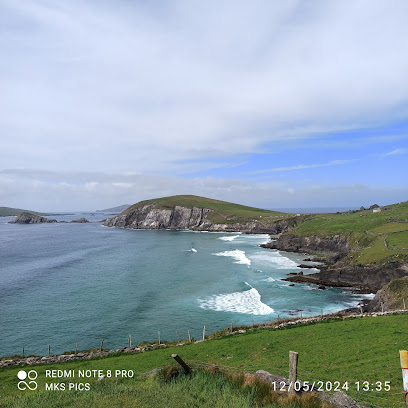
Conor Pass
Experience the breathtaking beauty of Conor Pass, a stunning mountain pass in County Kerry, Ireland, offering panoramic views and exhilarating adventures.
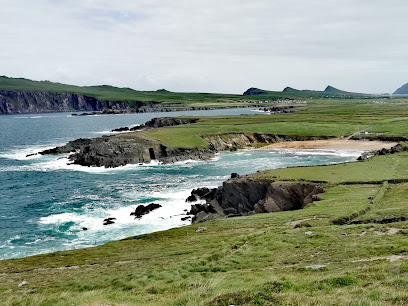
Coumeenoole Beach
Explore the stunning Coumeenoole Beach on Ireland's Dingle Peninsula, where dramatic cliffs meet golden sands and breathtaking ocean views await.
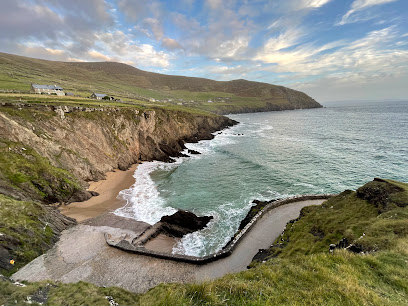
Cé Dhún Chaoin / Dunquin Pier
Discover the breathtaking beauty of Dunquin Pier, a scenic spot in County Kerry, Ireland, offering stunning views and a glimpse into rich cultural heritage.
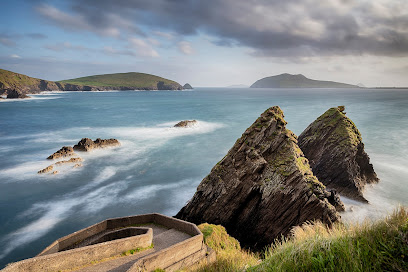
Dingle Dolphin Boat Tours
Discover the beauty of Dingle Bay with unforgettable dolphin sightings and breathtaking coastal views with Dingle Dolphin Boat Tours.
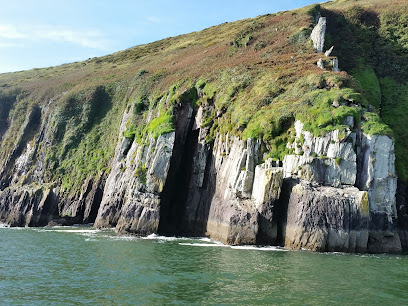
The Blasket Centre
Experience the captivating history and culture of the Blasket Islands at The Blasket Centre, a must-visit heritage museum in County Kerry.
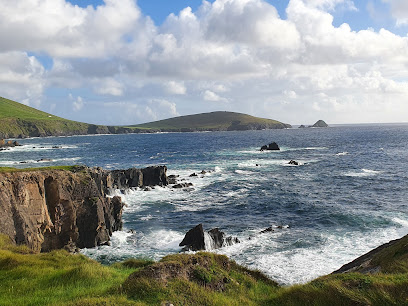
Beehive Hut (Tóchar Maothaithe)
Experience the Beehive Hut in Co. Kerry, an ancient monument steeped in history and surrounded by breathtaking landscapes, perfect for every traveler.
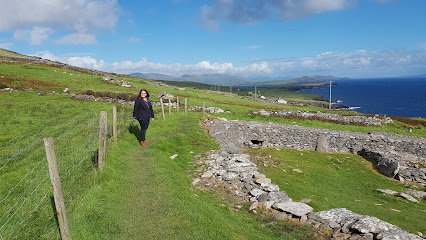
Gallarus Oratory Visitor Centre
Explore the ancient wonders of Gallarus Oratory Visitor Centre, a historical gem nestled in the scenic Dingle Peninsula of Ireland.
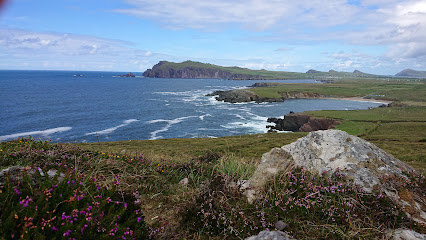
Conor Pass waterfall
Discover the serene beauty of Conor Pass Waterfall, a breathtaking natural attraction nestled in County Kerry, Ireland, perfect for nature lovers and adventurers.
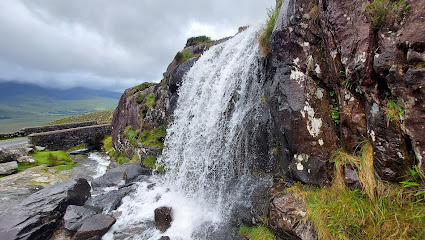
Gallarus Oratory
Explore the ancient Gallarus Oratory, a breathtaking historical landmark in County Kerry, Ireland, steeped in culture and scenic beauty.
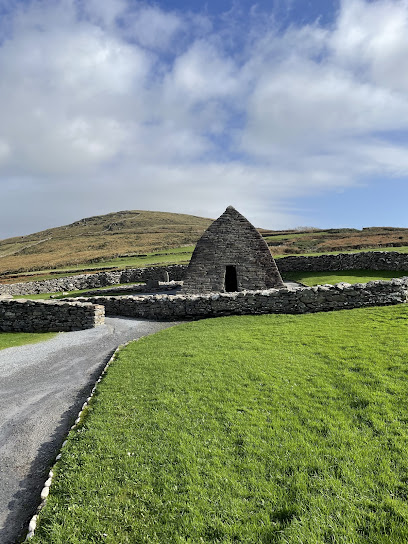
Hold a Baby Lamb
Experience the charm of Co. Kerry by holding a baby lamb at this unique tourist attraction surrounded by breathtaking Irish countryside.
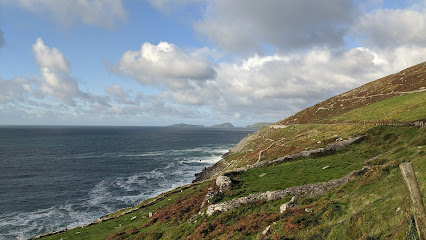
Minard Castle
Discover the enchanting Minard Castle in Co. Kerry, Ireland, where history meets breathtaking coastal beauty.
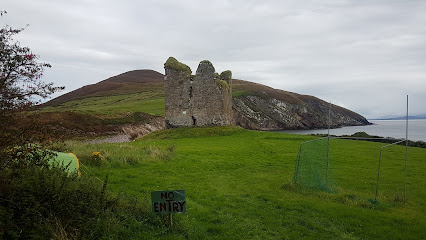
Cross at Slea Head
Experience the breathtaking views and rich history at the Cross at Slea Head, a must-visit monument along Ireland's Wild Atlantic Way.
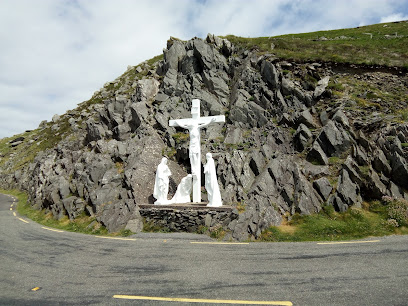
Fairy Fort Ringfort
Discover the magic of Fairy Fort Ringfort, an archaeological site in Dingle, Co. Kerry, where ancient legends and breathtaking landscapes intertwine.
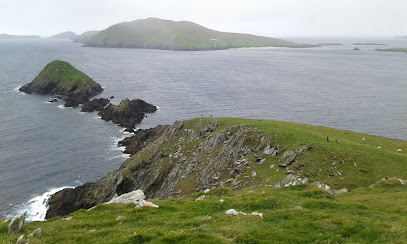
Cill Maoilchéadair
Explore Kilmalkedar, a remarkable 13th-century historical landmark in Co. Kerry, where ancient heritage meets breathtaking landscapes.
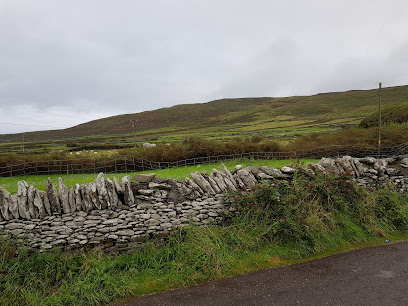
Unmissable attractions to see
Ceann Sibéal Golf Club
Experience the breathtaking beauty of Ceann Sibéal Golf Club in Dingle, where golf meets the stunning landscapes of the Irish coast.
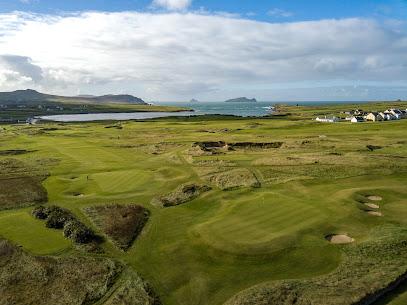
Dingle Lighthouse (Teach Solais an Daingin)
Explore Dingle Lighthouse, an iconic historical landmark offering stunning views of the Atlantic and a glimpse into maritime heritage.
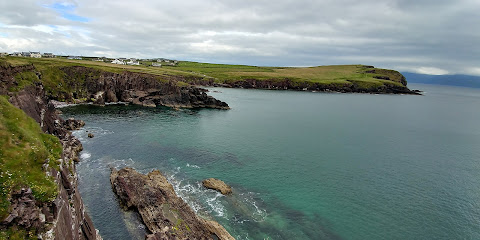
St Mary's Church
Experience the tranquil beauty and rich heritage of St. Mary's Church, a must-see Catholic landmark in Dingle, County Kerry.
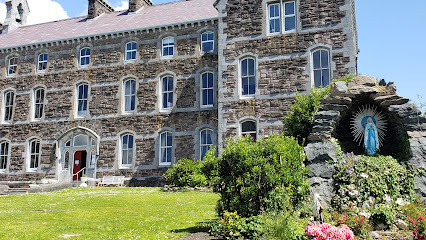
Irish Adventures
Experience the breathtaking beauty of Dingle Bay through adventurous canoeing and kayaking with Irish Adventures – a must-visit for nature lovers.
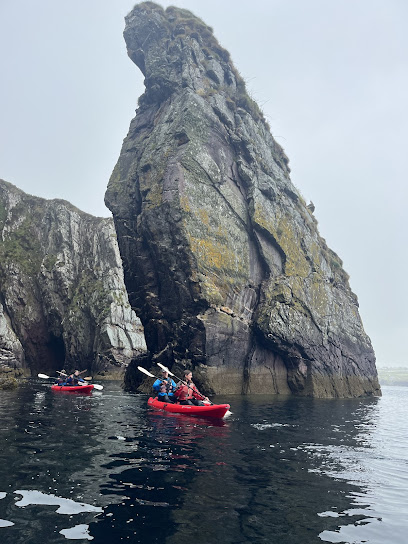
Kinard Beach
Experience the serene beauty of Kinard Beach, a hidden gem in County Kerry, perfect for relaxation and nature exploration.
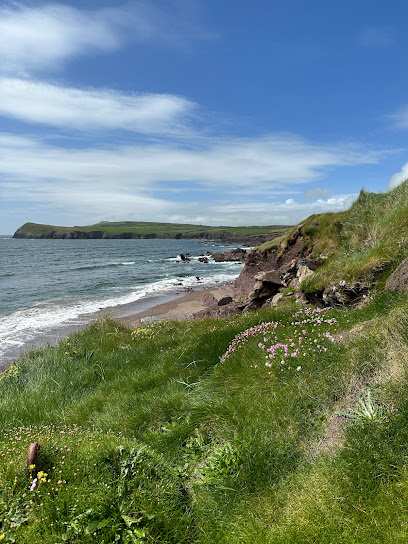
Rahinnane Castle
Discover the historical allure and natural beauty of Rahinnane Castle in County Kerry, a must-visit destination for every traveler exploring Ireland.
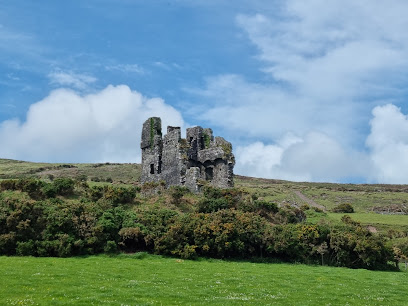
Fungie - The Dingle Dolphin
Experience the joy of witnessing Fungie, the Dingle Dolphin, in the stunning coastal beauty of Dingle Bay, Ireland's premier marine attraction.
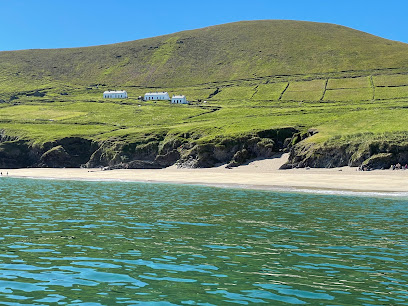
The Carol Cronin Gallery
Explore the captivating world of art at The Carol Cronin Gallery, a hidden gem in Dingle showcasing local talent and stunning landscapes.
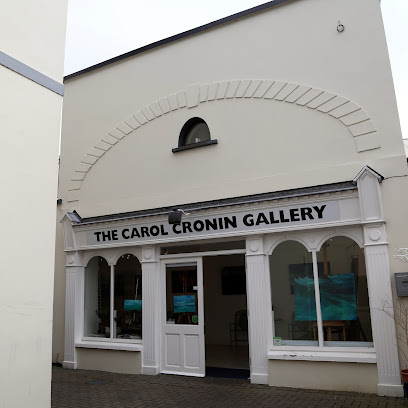
The Oratory
Discover the serene beauty and historical significance of The Oratory in Ballydavid, County Kerry, a must-see for every traveler exploring Ireland.
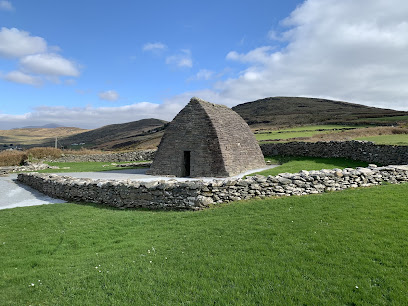
The Blaskets
Explore the breathtaking landscapes and rich cultural heritage of The Blaskets, a hidden gem off the coast of County Kerry, Ireland.
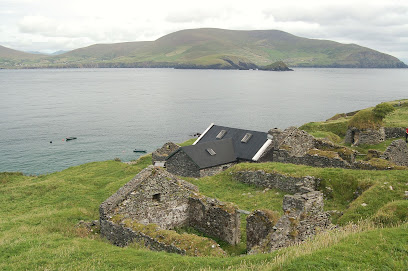
Cosán na Naomh (The Saints Road)
Experience the breathtaking beauty and spiritual richness of Cosán na Naomh, a historic pilgrimage trail in County Kerry that captivates every adventurer.
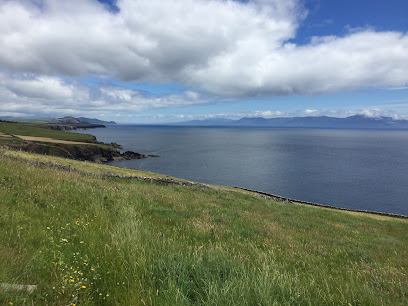
Dooneen Pier Cé an Dúinín CAR PARK
Experience the serene beauty of Dooneen Pier in Co. Kerry, an idyllic spot for relaxation, nature walks, and breathtaking views.
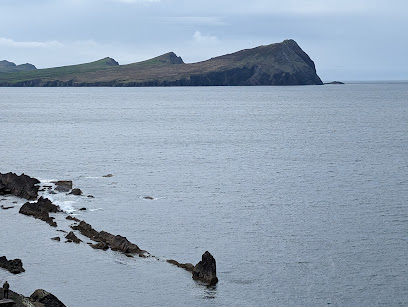
Ferriter’s Cove
Explore the stunning coastal trails of Ferriter's Cove in County Kerry, where nature's beauty and adventure await at every turn.
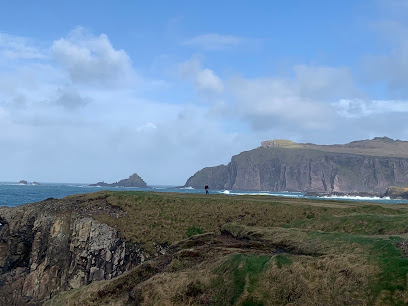
Fungie Memorial
Discover the Fungie Memorial in Dingle, Ireland, a heartfelt tribute to the beloved dolphin who captured hearts and inspired a community.
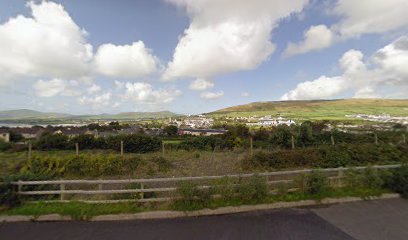
Dingle Peninsula
Explore the Dingle Peninsula, a magnificent blend of dramatic landscapes, rich heritage, and vibrant culture in the heart of Ireland.
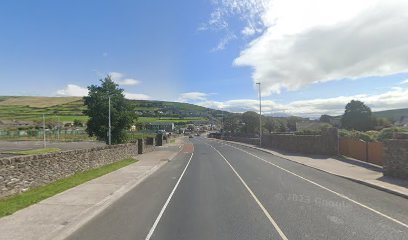
Essential places to dine
The Fish Box / Flannery's Seafood Bar
Experience Dingle's culinary treasure at The Fish Box - savor fresh seafood in a warm, welcoming atmosphere.
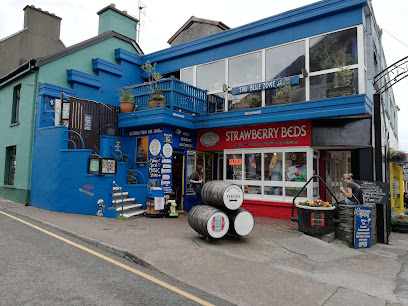
John Benny's Pub
Discover John Benny's Pub in Dingle - A vibrant spot for live music and traditional Irish cuisine amidst stunning coastal scenery.
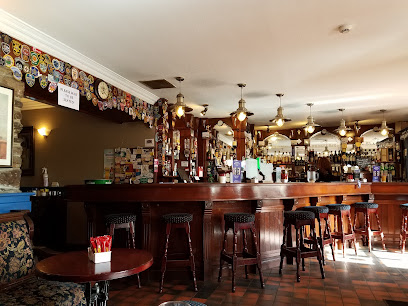
Out of the Blue
Experience exquisite seafood dining at Out of the Blue in Dingle, where fresh flavors meet stunning coastal views.
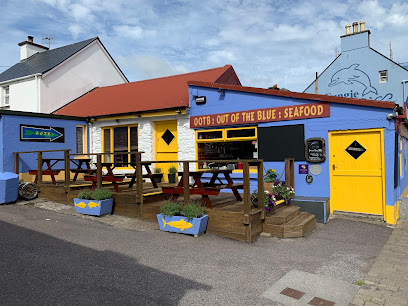
Paul Geaney's Bar & Restaurant
Discover the heart of Dingle at Paul Geaney's Bar & Restaurant - where Irish hospitality meets culinary excellence.
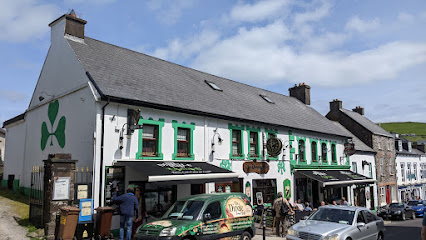
The Boatyard Restaurant
Experience exquisite seafood dining at The Boatyard Restaurant in Dingle, where fresh catches meet stunning coastal views.
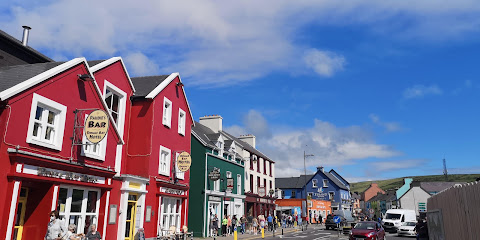
James Long Gastro Pub
Discover the culinary delights at James Long Gastro Pub in Dingle, where traditional Irish cuisine meets modern grilling techniques.
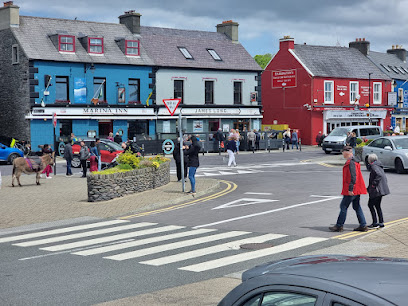
Marina Inn
Experience authentic Irish cuisine and vibrant culture at Marina Inn in Dingle – your perfect retreat in County Kerry.
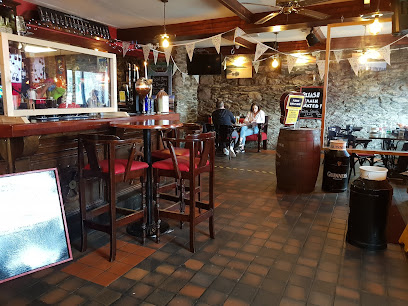
The Dingle Diner
Experience authentic Irish comfort food at The Dingle Diner in picturesque Dingle Town.
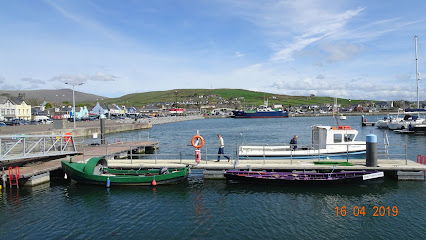
Danno's Restaurant & Bar
Experience the best of Irish cuisine at Danno's Restaurant & Bar in Dingle—where delicious food meets warm hospitality.
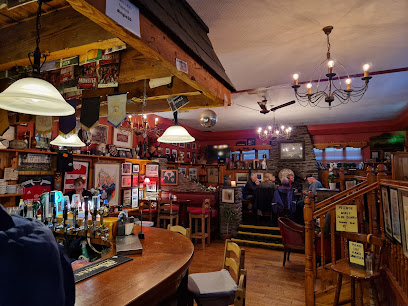
Harrington's Restaurant
Experience authentic Irish cuisine at Harrington's Restaurant in Dingle, where local flavors meet warm hospitality.
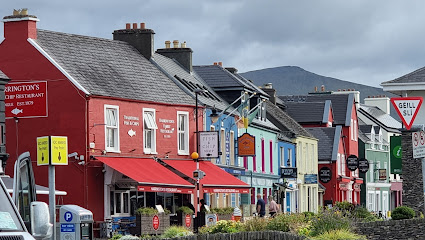
Doyle's Seafood Restaurant Dingle Ireland
Experience the freshest seafood in Dingle at Doyle's Seafood Restaurant, where local flavors meet stunning coastal views.
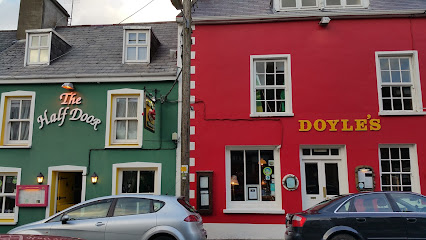
Reel Dingle Fish
Savor the freshest fish and chips at Reel Dingle Fish - a must-visit takeout restaurant in scenic Dingle, Co. Kerry.
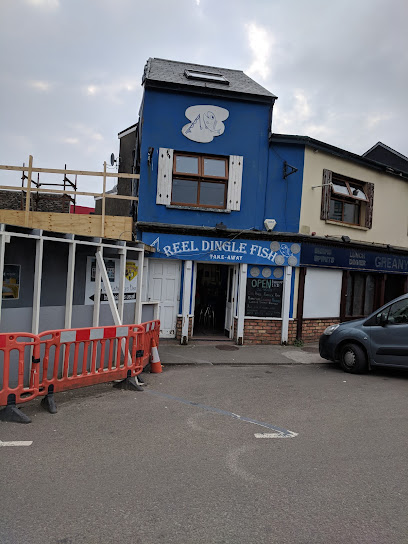
Ashes Restaurant & Bar
Experience authentic Irish cuisine at Ashes Restaurant & Bar in Dingle, where fresh local ingredients meet warm hospitality.
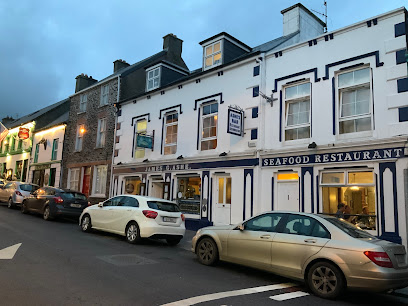
Solas Tapas & Wine
Discover the culinary delights at Solas Tapas & Wine in Dingle, where small plates meet local flavors in a cozy atmosphere.
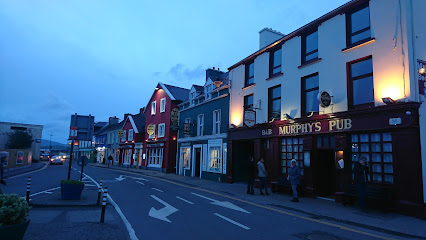
Fenton's of Dingle
Experience the best of modern European cuisine at Fenton's of Dingle—where fresh local ingredients meet culinary excellence.
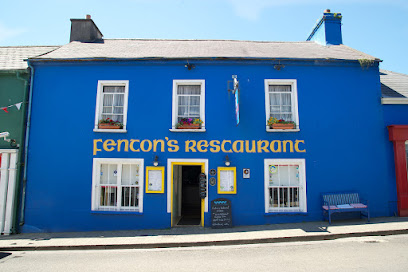
Markets, malls and hidden boutiques
Strand House Dingle
Discover fashion and local cuisine at Strand House Dingle, your ultimate shopping and dining destination in the heart of Dingle, County Kerry.
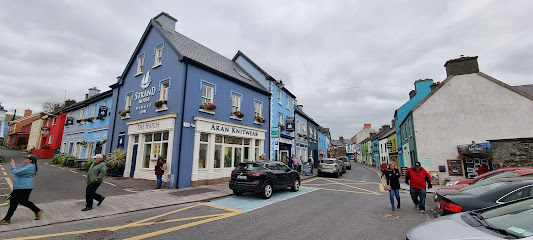
Dingle Crystal
Discover exquisite handcrafted crystal at Dingle Crystal, where Irish artistry shines in every beautiful piece.
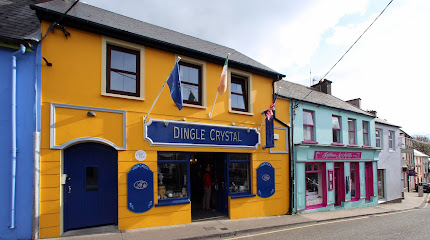
UNIQUE IRELAND PHONE & GIFT SHOP
Explore Unique Ireland Phone & Gift Shop in Dingle for quality phones, accessories, and authentic Irish gifts that capture the essence of your travels.
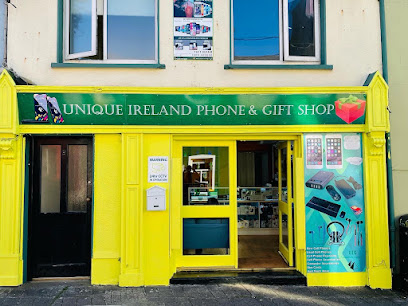
The Dingle Woollen Company - Gift/Knitwear Shop
Discover authentic Irish knitwear and handmade gifts at Dingle Woollen Company, a treasure trove of local craftsmanship in the heart of Dingle.
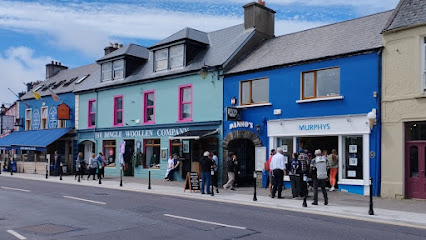
Kathleen McAuliffe
Discover unique fashion accessories that capture the essence of Dingle at Kathleen McAuliffe, a favorite destination for tourists and locals.
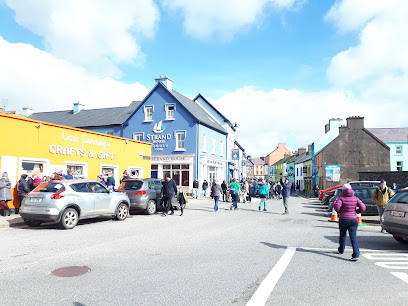
Dingle Record Shop
Explore the rich sounds of Ireland at Dingle Record Shop, your go-to destination for traditional and contemporary music in Dingle.
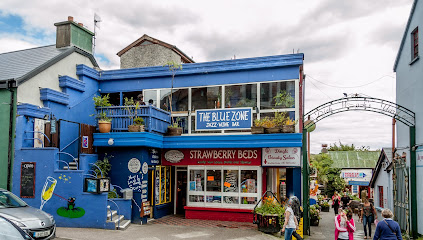
The Coach House
Discover unique gifts and authentic Irish goods at The Coach House in Dingle, where craftsmanship meets creativity in a charming setting.
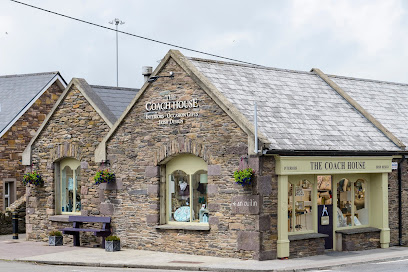
Garveys Sport & Leisure
Explore Dingle's breathtaking landscapes with quality gear from Garveys Sport & Leisure, your outdoor sports store for all adventures in County Kerry.
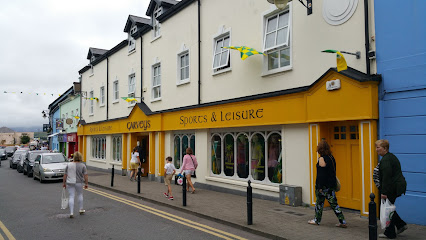
The Dolphin Shop
Discover unique souvenirs and local crafts at The Dolphin Shop, a charming store in Dingle, celebrating the beauty of Ireland.
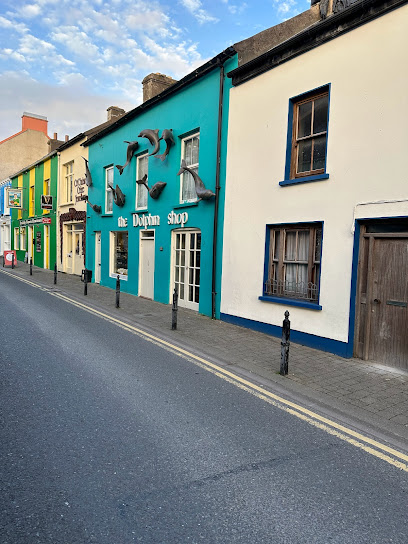
Leac a Ré
Discover authentic Irish souvenirs at Leac a Ré in Dingle, where craftsmanship meets culture in a charming shopping experience.
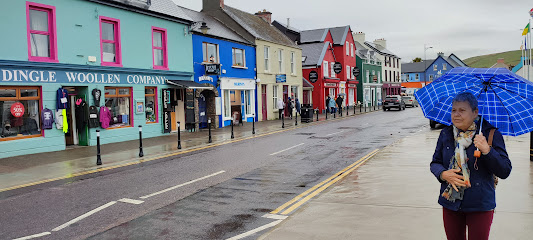
Uisce Leather
Discover Uisce Leather in Dingle for exquisite leather goods and handcrafted treasures that embody the spirit of Irish craftsmanship.
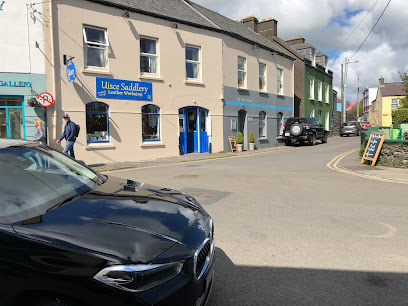
Sweet Pea
Explore Sweet Pea Gift Shop in Dingle, Co. Kerry - a unique destination for handcrafted treasures and authentic Irish souvenirs.
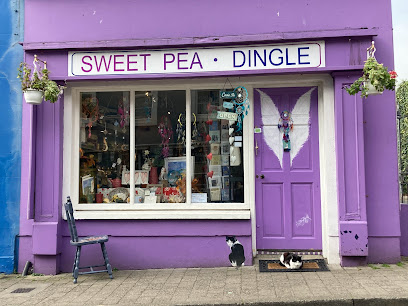
LilyMais
Discover unique beachwear and fashionable apparel at LilyMais, the premier clothing store in Dingle, Co. Kerry.
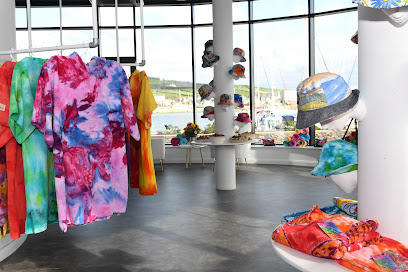
Dingle Candle Handmade
Discover the enchanting world of handcrafted candles and local crafts at Dingle Candle Handmade in the heart of Dingle, Co. Kerry.
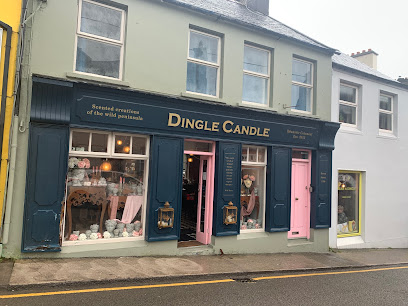
The White Room Dingle
Explore The White Room Dingle – a treasure trove of unique gifts, local crafts, and charming home goods in the heart of Dingle, Co. Kerry.
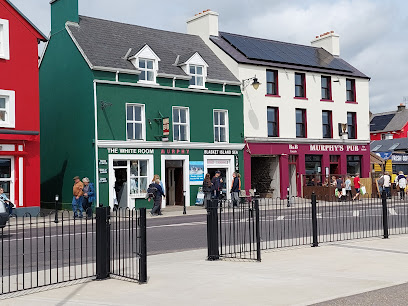
Essential bars & hidden hideouts
Dick Mack's Pub
Experience the heart of Dingle at Dick Mack's Pub - a historic Irish treasure with craft brews and live music.
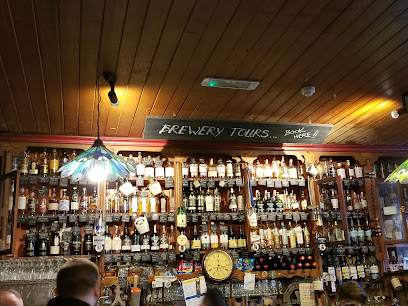
Murphy's Pub, Bed & Breakfast
Discover the heart of Dingle at Murphy's Pub, where authentic Irish cuisine and warm hospitality create unforgettable memories.
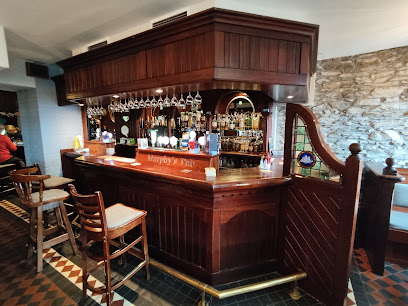
Foxy John's
Discover Foxy John's in Dingle, where traditional Irish hospitality and vibrant culture meet in a cozy pub atmosphere.
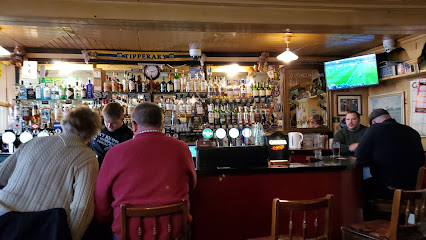
John Benny's Pub
Discover the vibrant atmosphere of John Benny's Pub in Dingle, where traditional Irish cuisine and live music create an unforgettable experience.
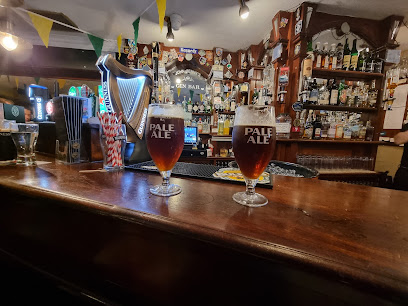
James Long Gastro Pub
Experience the Best of Irish Cuisine at James Long Gastro Pub in Dingle - A Perfect Blend of Flavor and Atmosphere.
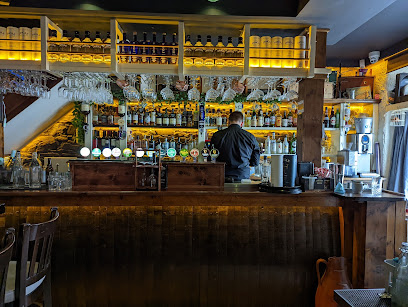
Marina Inn
Discover authentic Irish cuisine and a welcoming atmosphere at Marina Inn in Dingle, the heart of County Kerry.
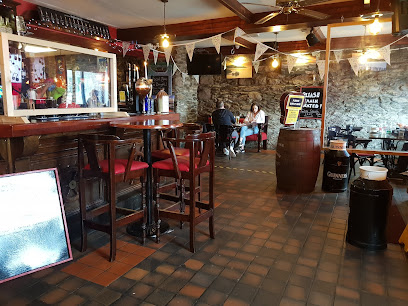
Danno's Restaurant & Bar
Experience the best of Irish grill cuisine at Danno's Restaurant & Bar in Dingle, where local flavors meet warm hospitality.
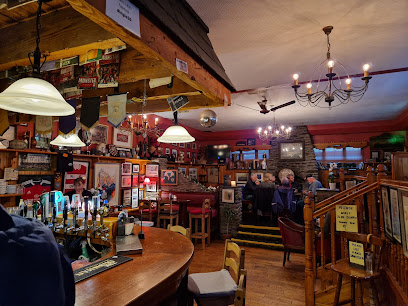
An Droichead Beag
Discover the warmth and charm of An Droichead Beag, a vibrant pub in Dingle offering local brews, hearty food, and live Irish music.
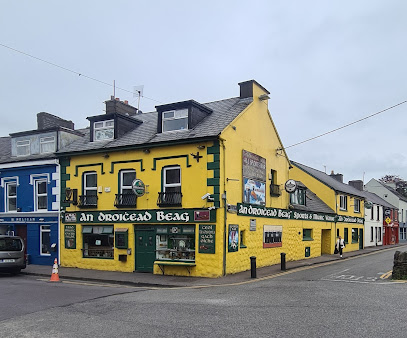
O'Flaherty's Bar
Discover the charm of O'Flaherty's Bar in Dingle, where authentic Irish culture meets warm hospitality and live music.
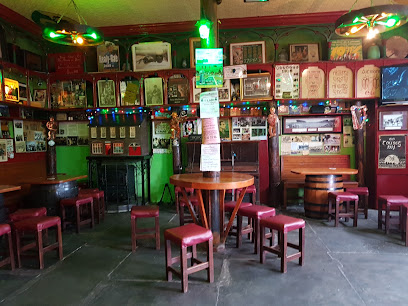
O'Sullivan's Courthouse Pub
Discover the warmth and charm of O'Sullivan's Courthouse Pub in Dingle, where traditional Irish hospitality meets vibrant live music and delicious cuisine.
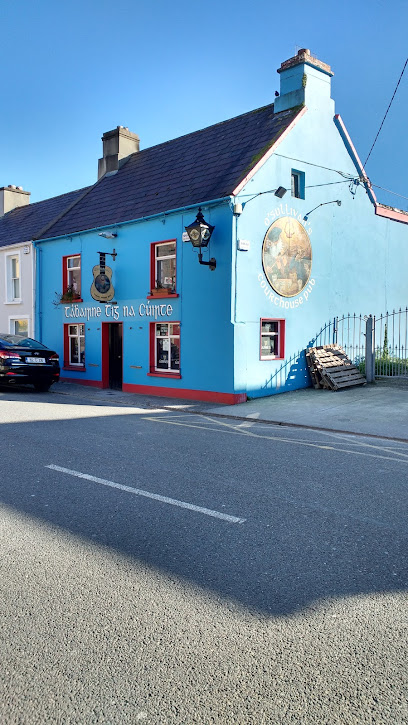
Paudie's Bar
Discover the charm of Paudie's Bar in Dingle, a perfect blend of traditional Irish music, local flavors, and a welcoming atmosphere.
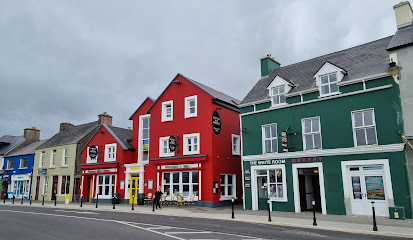
Neligan's Bar
Discover the charm of Dingle at Neligan's Bar, where lively music and local brews unite in a cozy, welcoming atmosphere.
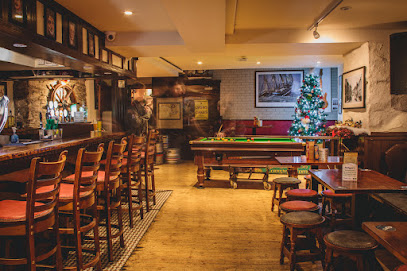
Bob Griffin’s Bar Dingle
Discover the vibrant atmosphere, local brews, and stunning beer garden at Bob Griffin’s Bar, a must-visit spot in Dingle, County Kerry.
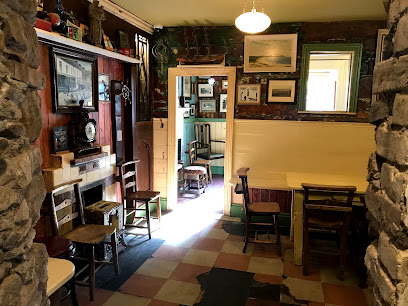
McCarthys Bar
Experience the heart of Irish culture at McCarthy's Bar in Dingle, where live music, fine drinks, and warm hospitality await.
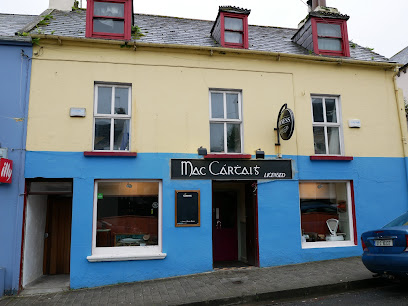
Paddy Bawn Brosnan’s
Experience the heart of Dingle at Paddy Bawn Brosnan’s, where local charm meets a vibrant atmosphere and a wide selection of drinks.
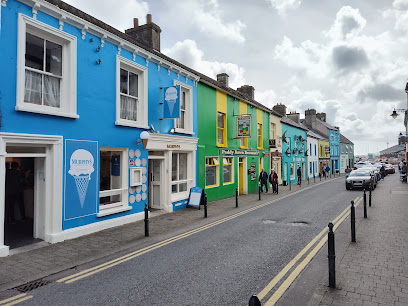
Local Phrases about Slea Head Drive
-
- HelloDia dhuit
[dee-ah gwit] - GoodbyeSlán
[slawn] - YesTá
[taw] - NoNíl
[neel] - Please/You're welcomeLe do thoil
[leh duh hull] - Thank youGo raibh maith agat
[guh rev mah agut] - Excuse me/SorryTá brón orm
[taw bron orum] - How are you?Conas atá tú?
[kun-us ah-taw too] - Fine. And you?Tá mé go maith. Agus tú?
[taw may goh mah. ah-gus too] - Do you speak English?An bhfuil Béarla agat?
[ahn will bayr-lah ah-gut] - I don't understandNí thuigim
[nee hug-im]
- HelloDia dhuit
-
- I'd like to see the menu, pleaseBa mhaith liom breathnú ar an mhinu, le do thoil
[bah wah lyum brah-noo air un min-oo, leh duh hull] - I don't eat meatNí ithim feoil
[nee ih-him foh-il] - Cheers!Sláinte!
[slawn-cheh] - I would like to pay, pleaseBa mhaith liom íoc, le do thoil
[bah wah lyum eek, leh duh hull]
- I'd like to see the menu, pleaseBa mhaith liom breathnú ar an mhinu, le do thoil
-
- Help!Cabhraigh!
[kow-ree] - Go away!Imigh uaim!
[ih-mee oow-um] - Call the Police!Glan an Garda!
[glawn on gahr-dah] - Call a doctor!Glan dochtúir!
[glawn dohk-too-ir] - I'm lostTá mé caillte
[taw may kahl-cheh] - I'm illTá mé tinn
[taw may tin]
- Help!Cabhraigh!
-
- I'd like to buy...Ba mhaith liom ceannach...
[bah wah lyum can-ukh...] - I'm just lookingNíl ach ag faire
[neel okh eg fah-reh] - How much is it?Cé mhéad atá air?
[kay vayd ah-taw air] - That's too expensiveTá sé ró-dháiríre
[taw shay row-daw-ree-reh] - Can you lower the price?An féidir leat an praghas a laghdú?
[ahn fay-dir lat an prah-gus ah lah-goo]
- I'd like to buy...Ba mhaith liom ceannach...
-
- What time is it?Cén t-am é?
[kayn tahm ay] - It's one o'clockTá sé a haon a chlog
[taw shay ah hayn ah khlog] - Half past (10)Leathuair tar éis a deich
[lah-hoo-ir tar aysh ah deh] - MorningMaidin
[mah-jin] - AfternoonTráthnóna
[traw-noh-nah] - EveningTráthnóna
[traw-noh-nah] - YesterdayInné
[in-ay] - TodayInniu
[in-yoo] - TomorrowAmárach
[ah-maw-rahk] - 1A haon
[ah hayn] - 2A dó
[ah doh] - 3A trí
[ah tree] - 4A ceathair
[ah kah-her] - 5A cúig
[ah koo-ig] - 6A sé
[ah shay] - 7A seacht
[ah shokht] - 8A hocht
[ah hukht] - 9A naoi
[ah knee] - 10A deich
[ah deh]
- What time is it?Cén t-am é?
-
- Where's a/the...?Cá bhfuil a...
[kah will ah] - What's the address?Céard an seoladh?
[kay-ard on shoh-lah] - Can you show me (on the map)?An féidir leat taispeáint dom (ar an léarscáil)?
[ahn fay-dir lat tash-paynt dum (ar un layr-skawl)] - When's the next (bus)?Cathain atá an chéad (bus) eile?
[kaw-hin ah-taw on khay-ad bus el-eh] - A ticket (to ....)Ticéad (go dtí ....)
[tick-ayd (goh dee)]
- Where's a/the...?Cá bhfuil a...
History of Slea Head Drive
-
Slea Head Drive offers a glimpse into ancient Irish history through its prehistoric settlements. One of the most notable is Dunbeg Fort, a promontory fort dating back to the Iron Age. This cliffside structure was strategically built for defense and offers insight into early human habitation and societal organization in the region. Archaeological finds, including artifacts and structural remains, suggest it was occupied from around 500 BC to the early medieval period.
-
Visible from Slea Head, the Great Blasket Island has a rich cultural and literary history. Inhabited until 1953, the island was home to a unique Gaelic-speaking community. It produced several renowned writers, including Peig Sayers and Tomás Ó Criomhthain, whose works provide invaluable accounts of island life. Their writings, celebrated for their linguistic and cultural significance, have become an integral part of Ireland's literary heritage.
-
The early Christian period left a significant mark on the Slea Head Drive area, with numerous monastic sites scattered throughout. The Gallarus Oratory is one of the most iconic. Dating back to between the 6th and 9th centuries, this dry-stone structure is remarkably well-preserved and exemplifies early Christian architecture. It is believed to have served as a place of worship and possibly as a shelter for pilgrims.
-
The Great Famine of the mid-19th century had a devastating impact on the Slea Head area, as it did on much of Ireland. Starvation, disease, and emigration drastically reduced the population. Many families were forced to abandon their homes, leading to a significant wave of emigration to North America and beyond. The remnants of abandoned famine cottages scattered along the drive serve as poignant reminders of this tragic period.
-
In 1588, the Spanish Armada, a fleet sent by King Philip II of Spain to invade England, was scattered by storms. Some ships found refuge along the coast of the Dingle Peninsula, near Slea Head. The Spanish sailors who survived were often met with mixed reactions, sometimes receiving aid from the locals and other times facing capture by English forces. These events have left an indelible mark on local folklore and history.
-
Slea Head Drive is situated in the Gaeltacht, an area where the Irish language and culture are actively preserved and promoted. The late 19th and early 20th centuries saw a cultural revival, with renewed efforts to sustain the Irish language and traditional practices. Institutions like the Blasket Centre and local schools play crucial roles in this ongoing revival, fostering a sense of cultural pride and continuity among residents and visitors alike.
Slea Head Drive Essentials
-
Slea Head Drive is located on the Dingle Peninsula in County Kerry, Ireland. The nearest airport is Kerry Airport, approximately 60 kilometers away. From the airport, you can rent a car or take a taxi to reach Dingle town, the starting point of Slea Head Drive. Alternatively, Shannon Airport and Cork Airport are also within a few hours' drive. Public buses operated by Bus Éireann connect Dingle with Tralee and other major towns.
-
The most convenient way to explore Slea Head Drive is by car, as it allows you to stop at various viewpoints and attractions along the route. Car rentals are available in Dingle town. Bicycles can also be rented for a more intimate experience of the scenic route. Public transportation options are limited, so plan accordingly. Taxis are available but can be expensive for long distances.
-
The official currency in Ireland is the Euro (EUR). Credit and debit cards are widely accepted in hotels, restaurants, and shops in Dingle and along Slea Head Drive. However, it's advisable to carry some cash, especially for smaller establishments and rural areas where card payment may not be an option. ATMs are available in Dingle town.
-
Slea Head Drive is generally a safe destination for tourists. However, as with any travel, it is wise to take precautions. Lock your car and keep valuables out of sight. Be cautious when driving, especially on narrow and winding roads. There are no specific high-crime areas targeting tourists, but it's always best to stay vigilant and aware of your surroundings.
-
In case of emergency, dial 112 or 999 for immediate assistance. The nearest medical facilities are in Dingle town, including a medical center and pharmacies. It is recommended to have travel insurance that covers medical emergencies. For minor health issues, pharmacies in Dingle can provide over-the-counter medications.
-
Fashion: Do dress in layers and bring a waterproof jacket, as weather can change rapidly. Avoid overly casual attire in more formal settings. Religion: Do respect local customs when visiting religious sites. Some churches may require modest dress. Public Transport: Do plan your schedule around limited public transport options. Don't rely solely on public transport for exploring Slea Head Drive. Greetings: Do greet people with a friendly 'hello' or 'hi.' A firm handshake is common. Eating & Drinking: Do try local specialties like fresh seafood and traditional Irish dishes. Don't forget to tip in restaurants, usually around 10-15%.
-
To experience Slea Head Drive like a local, consider visiting during the off-peak season to avoid crowds. Engage with locals in Dingle pubs and listen to traditional Irish music sessions. Don't miss the opportunity to visit the Blasket Islands for a unique cultural experience. For breathtaking views, take a hike up Mount Brandon. Renting a bike can offer a slower, more immersive experience of the scenic route.
Trending Landmarks in Slea Head Drive
-
Dingle Oceanworld Aquarium
-
Conor Pass
-
Coumeenoole Beach
-
Cé Dhún Chaoin / Dunquin Pier
-
Dingle Dolphin Boat Tours
-
The Blasket Centre
-
Beehive Hut (Tóchar Maothaithe)
-
Gallarus Oratory Visitor Centre
-
Conor Pass waterfall
-
Gallarus Oratory
-
Hold a Baby Lamb
-
Minard Castle
-
Cross at Slea Head
-
Fairy Fort Ringfort
-
Cill Maoilchéadair
Nearby Cities to Slea Head Drive
-
Things To Do in Tralee
-
Things To Do in Killarney
-
Things To Do in Ennis
-
Things To Do in Cork
-
Things To Do in Limerick
-
Things To Do in Kinsale
-
Things To Do in Salthill
-
Things To Do in Galway
-
Things To Do in Westport
-
Things To Do in Athlone
-
Things To Do in Kilkenny
-
Things To Do in Waterford
-
Things To Do in Wexford
-
Things To Do in Sligo
-
Things To Do in Dublin











